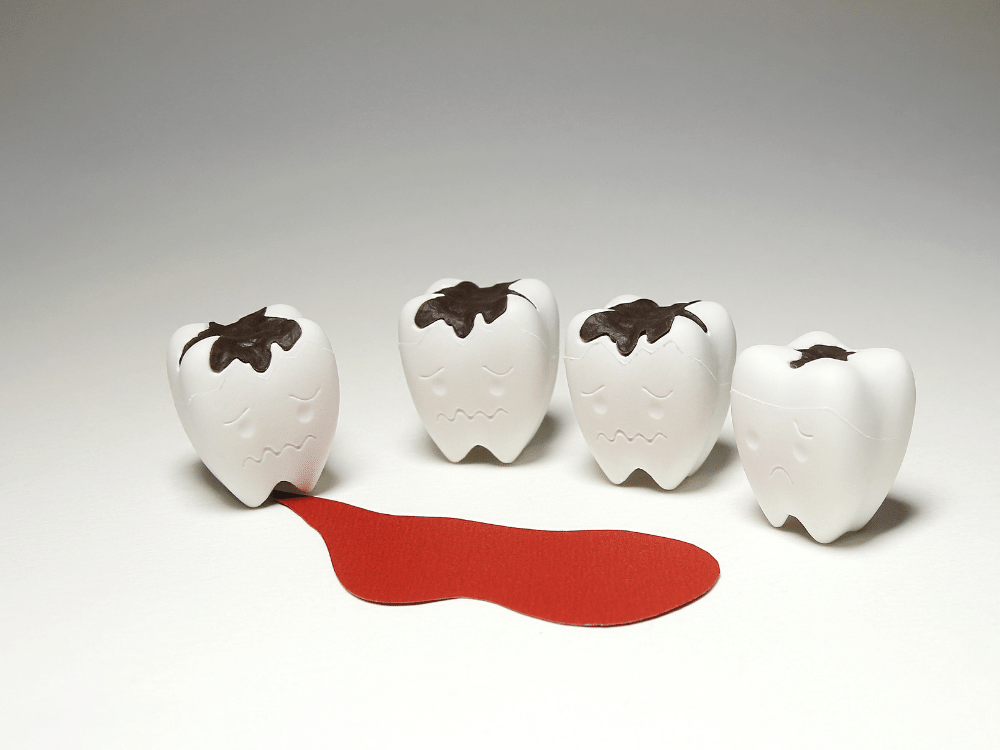Why Are My Gums Bleeding?
Our gums can tell us a lot about how our body is doing. The more we pay attention to its colour and texture, the sooner we can tell if there is a problem and that it is time to pay a visit to the doctor or dentist. Our gum colours can be influenced by genetics. While shades of pink are typical, gums that are pale or in shades of brown can also be perfectly healthy. However, if your gums is red, yellow, white or grey with accompany pain, swelling and other discomfort, immediately consult your dentist for further advice.
Gum colours aside, it is not uncommon to experience bleeding gums. In fact, as much as 90% of the population occasionally experience bleeding gums. So, what are some common causes for bleeding gums?
Brushing too hard or flossing too vigorously
Our gums can bleed simply because we are brushing too hard or with a hard-bristled toothbrush, or flossing too vigorously. Go with a gentler touch. We do not need to use heavy pressure to remove plaque from our teeth and it is important to not over brush. Instead, set a timer for 2 minutes and take the time to thoroughly brush your teeth. It has been shown that a 2-minute brush time can get rid of 26% more plaque.
Gingivitis
Gingivitis can cause swollen, tender and sometimes bleeding gums during brushing. Improper oral hygiene leading to bacterial plaque is the main cause for gingivitis, and can advance to the periodontitis and tooth loss. Visit your dentist as soon as you can. When working with patients gingivitis, Dr Edwin Goh prefers to go for non-surgical periodontal treatments. The treatment plan is usually split over a few visits and comprises mainly of scaling and root debridement, whereby root surfaces are carefully cleaned using local anaesthesia to remove bacterial plaque and tartar. Surgical periodontal treatment is usually indicated only after non-surgical periodontal treatment is completed. With early intervention, it is possible to reverse the condition and regain healthy gums once more. Surgical periodontal treatment is usually indicated only after non-surgical periodontal treatment is completed.
Medication
Blood-thinning medicine typically taken by patients with heart conditions can decrease the blood’s ability to clot. It is important to inform your dentist on your experience and the medicine you are taking during regular appointments.
Pregnancy
Being pregnant can increase a woman’s risk of developing pregnancy gingivitis. This is due to changes in the body caused by hormonal fluctuations, which can alter how the body reacts to bacteria responsible for gum diseases. Visiting the dentist, regular brushing and daily flossing can prevent gum inflammation and bleeding from becoming worse.
Make an appointment with your dentist with your bleeding gums persists or worsens.


